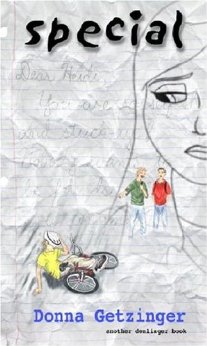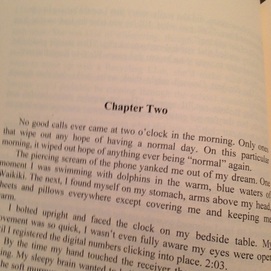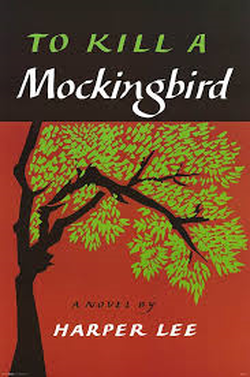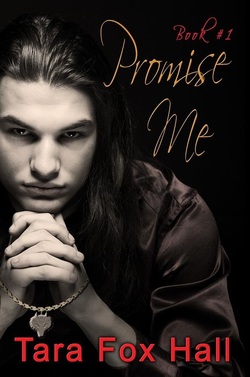 I have some good news: I’ve sold another book! Schoolwide Inc. will be publishing my MG novel No One Needed to Know in their digital library targeted to schools and educators next year. How this all came to be is a story that fits neatly with my Write and Rewrite themed blog. Back in 2004, a tiny little publisher called Denlinger’s Publishers took on my MG novel Special. This was a story based loosely on my experience as a girl with an older Autistic brother. The year this book was released was a hard year for me personally, as my 1st marriage dissolved and I suddenly became a single mother of a 3-year-old and had 3 jobs to make ends meet. I had little time to promote. Then a series of hurricanes hit Florida a couple years later, and they destroyed Denlinger’s facility. They went out of business, and my book went out of print. What to do with a novel that has been published and discarded? I put it in a drawer for a while. Ten years later, I decided that it was time to pull that book out again and tinker with it. I rewrote it by changing it to first person and updating it a touch. Then I started submitting it again under a new title and my new name. I learned about Schoolwide Inc., a 20 year old company dedicated to promoting literacy in classrooms and helping reluctant readers. They were looking to start a line of original content and were open to books that had gone out of print. I sent them mine. To my elation I heard back pretty quickly from one of the editors who told me he loved my book. He wrote glorious things like, “The world needs more books like this. It not only entertains, it educates. And it educates because you have written such an engaging story, with an authentic and sympathetic narrator.” But he followed that with: “While I am very excited about this project and hope to continue working with you on it, I feel that in its current form it is not ready for us to accept for publication.” Oh no! What? “I am inviting you to revise the work and resubmit it for our consideration.” Later, he qualified that it would be a “substantial revision”. His challenge to me was that if I revised the book (mostly by attacking the 2nd half of the book), he would consider publishing it. Oh, and he needed it done by October 1st in order to make the list coming out next year. I looked at the notes he gave me, and they all made perfect sense. I got right to work. Mostly what he wanted was for me to get away from anything that sounded like I was teaching the reader about Austism or Special Needs and stick to the immediacy of the story. I wound up discarding quite a bit, but I added so much more. I wound up tacking on 11,000 words to the book before I was done. I sent it back a couple weeks ago. Today I signed the contract and stuck it in the mail. I’m beyond thrilled that this story gets a second life and will be read by children in schools throughout the country. They have plans to do print versions down the road as well.  A few weeks ago, I wrote this essay as a guest post on the blog by author Nancy Pennick. In case you missed it there, I thought I'd repeat it here. “No good calls ever came at two o’clock in the morning. Only ones that wipe out any hope of having a normal day. On this particular morning, it wiped out hope of anything ever being “normal” again.” This was supposed to be the opening line of my novel Cry of the Sea. I was so proud of it. So proud! Yes, I envisioned its brilliance being quoted as one of the great opening lines of YA literature at many a writer’s conference for years to come. I loved it so much that no matter what I felt about the rest of the chapter, I was determined to keep that first line. Why was I so sure? Or stubborn? I have attended so many writing workshops and read so many books and articles about the craft of writing novels. Several things have been drummed into my head. “Have a great opening line.” “Hook your reader from the first moment.” “Start where the action is.” “Start your novel where the protagonist’s life changes from its normal routine.” “Start on the day that is different.” And my favorite? “Get to the main point of the plot before page 30.” So, I had this idea for a story about a girl who discovers mermaids caught in an oil spill. Based on everything I’ve learned, that meant she had to find the mermaids before page thirty. I also felt strongly that the story needed to start in the moments just before finding those mermaids. How best to do this? I thought it would be exciting to have her wake up to the alarming news of the oil spill and have her rushing out the door with her environmentalist father to get to the beach. There were some problems with my idea. I had to somehow very quickly introduce my main character and her father, their relationship, and the reason they were going to an oil spill. There was a lot of information to share to have the story make any sense. I thought I’d be clever and get some of that out with a little flashback to the night before in order to explain a few things. Only, that flashback grew from a few paragraphs to a dozen pages before coming back to the big rush to the beach. More important writing advice haunted me: “Don’t have a big flashback in the opening chapter.” “Don’t info dump.” “Show don’t tell.” Oh, poo on all of that. I had an awesome opening line! It had to stay this way. Well… I sent my first chapter to a few agents and editors. No one sent me back praise for my glorious first line. No one requested more pages either. I grew frustrated. Yet, I didn’t revise. I’d already revised the book over and over, and I didn’t know how to do it again. Not without ruining my opening line. The writing advice I knew conflicted in my brain. Bless the team at Fire and Ice, though. They stumbled past my opening chapter and read on to find the story that followed it. They offered to publish the book and sent Megan Orsini, my editor, to help me out. Her very first note to me: “I think the flashback in the opening chapter is too long. I forgot it was a flashback. Why don’t you make that the opening chapter and put the phone call and oil spill scene in chapter two.” But… but… That would put my opening line in chapter two. Do you hear me whining? I knew Megan was right, and I followed her advice. I wound up completely rewriting the whole opening to my book. With her guidance, I actually revised the opening chapter six times and the first page an additional two after that. Now my opening line is: “You ready to see how the next big change in your life is going to look” as asked by June’s father. No, this won’t put me in any lists of great opening lines, but it works. The book works better too. And guess what? We still meet mermaids on page 22. Yay! So, friends, what I’ve learned: don’t marry your words and do trust your editor. With a sly wink, however, I’m happy to announce that a woman who recently reviewed Cry of the Sea on her blog included a quote from my book. Which of my words did she use? My opening line – of Chapter Two.  Recently I saw an American Masters special on PBS about Harper Lee, the author of the classic children's novel To Kill a Mockingbird. Like most people, I've always loved the novel and considered it to be "perfect" books that have such depth and wisdom while still being entertaining to read. So, I was a bit startled to find out while watching the biography that this novel didn't flow easily from Lee's pen. She wrote it over a long period of time, and even after a year of dedicated work, quitting her job to devote all her time on it, the book was still not fully formed or publishable. Thankfully, agent Maurice Crain saw magic in her words and concept. Not many agents these days would take on a never published author whose work showed promise but was far from complete. I find that agents at writing conferences are always talking about how they enjoy helping authors mold their pieces, but the guidelines at their websites make it clear that they want books that are as close to publishable as possible. At any rate, Crain accepted her novel and sold it under the working titled of Atticus to editor Tay Hohoff at J. B. Lippencott publishers in New York. Hohoff said that the book was really a collection of short stories when he accepted it. "There were dangling threads of plot, there was a lack of unity - a beginning, a middle, an end that was inherent in the beginning," he remembered in an interview. He also said, "The editorial call to duty was plain." Again, I marvel at the fact that a publisher, knowing the book needed substantial work, took the project on and had faith it would turn out right in the end. With Hohoff's guidance, Harper Lee rewrote her novel three and half times and gave it the new now-famous title before it was ready to publish. It has been conjectured that one of the reasons Harper Lee didn't release a second novel until decades later is due to the fact that Hohoff retired and her agent, Maurice Crain, passed away. She was very reliant upon their help. This quote from Louisa Thomas of Newsweek in her article "Who Helped Harper Lee With Mockingbird?" sums it up: "We like to think of writers, like heroes, as isolated beings. To an extent, it's true; writing is often lonely and painful, a confrontation between the self and the blankness of the page. But a book is also shaped by the system of editors, agents, publishers, teachers, and readers." So, remember as you struggle with your drafts: even the great authors have to revise.  My guest this week is Tara Fox Hall, author of the Promise Me series from Melange Books. She shares her story of a writing workshop intervention that helped get her writing to a publishable level. Tara Fox Hall: To say I needed a lot of help getting my first novel, Promise, ready for publication is an understatement. It was 200K in length, it had punctuation errors, and I tended to use not only repeated words, but also several paragraphs when a few sentences would do. I was lucky enough to qualify for a writer’s workshop through a small press, Wolf-Pirate Publishing, which helped me immensely to work on these problems, as well as others I wasn’t aware of. At first, the criticism was very hard to take, not to mention all the rewriting needed for multiple rounds of edits. But it not only made Promise better and gave me experience with what a real publisher would require, it helped me change the way I wrote, so I didn’t make the same mistakes in new rough drafts I crafted. I also went back through my other works using what I’d learned and made them better. Promise eventually became two books, Promise Me and Broken Promise, which are part of my successful Promise Me Series. Now three years into my writing career, I look back at my first attempts and am glad no one published them. I also keep trying to get better with each new project. Here is a short except from the first final draft of Promise. Someone had tried to kill him and almost succeeded. That someone had involved me, by dumping him so close to my house. And I had done the last thing expected: shelter a total stranger in a basement with no windows. If he had been out all night, he would have been a pile of ashes by now. The truck I would have found today would be empty, and I'd have called the police. They would have come and hauled it away, and that would have been the end of it. My thoughts were manic, but nothing like this had ever happened to me before. I had involved myself in something I had no experience to handle, and I was unused to the feeling. But I was smart, and strong. I’d work out a best course of action, if I thought long enough, and kept my reason. No one knew now even that he was here, except whomever had struck him. Because usually when you try to kill someone, you have a reason. I was gambling here that I had found the good guy, whom some bad guy had hurt. But the opposite could be true. And that led me to the only conclusion it could. I wanted to know what was going on, and why this guy had been dumped here, and who had hurt him. I wanted to know what he was, that he had teeth like that. Plus he was hot, and he was stirring things in me that hadn't been stirred in a while. Okay, a longer than average while. Final Promise Me published version. If the legends were true, someone might have tried to kill him last night. That someone had involved me by dumping him so close to my house. I’d done the last thing expected; sheltered a total stranger in a basement with no windows. If I’d left him outside, he’d be a pile of wet ash by now. The truck would be empty, and I’d have called the police when I went out this morning to check the quarry. They would have come and hauled it away, and that would have been the end of it. My thoughts were manic, but nothing like this had ever happened to me before. I’d involved myself in something I had no experience to handle, and I wasn’t used to the feeling. But I was confident that I’d work it out if I reasoned over it long enough. My more prevailing thought was curiosity. I wanted to know what was going on and why this guy had been dumped here, and who’d hurt him. His sexy appearance stirred things in me that hadn’t been stirred in a while. About Promise Me: When young widow Sarelle McGarren finds the vampire Danial Racklan unconscious and hurt in her woods, intuit concern quickly becomes passionate love. Together, Danial and Sar work to overcome their own past heartbreaks, their vastly different lifestyles, and Danial's relentless enemies. Yet Danial needs more: an Oath of Forever. But can Sar give Danial his greatest desire? Get your copy at: http://www.amazon.com/Promise-Me-ebook/dp/B0086G4GDC http://www.lulu.com/shop/tara-fox-hall/promise-me/paperback/product-20146694.html http://www.barnesandnoble.com/s/tara-fox-hall http://www.melange-books.com/authors/tarafoxhall/index.html Follow Tara Fox Hall: https://www.smashwords.com/profile/view/TaraFH http://www.barnesandnoble.com/s/tara-fox-hall http://www.melange-books.com/authors/tarafoxhall/index.html http://www.goodreads.com/author/show/5286654.Tara_Fox_Hall http://www.amazon.com/Tara-Fox-Hall/e/B005YPAA4W/ www.tarafoxhall.com http://www.goodreads.com/author/show/5286654.Tara_Fox_Hall/blog https://www.facebook.com/pages/Tara-Fox-Hall/151813374904903 https://twitter.com/#!/TerrorFoxHall  A wonderful guest post today from B. K. Fowler, author of the new historical novel Ken's War. She has some great insight about favorite words that authors tend to overuse. From B. K. Fowler: Every writer has pet words. Tabitha King's pets in The Trap are hooked and hauled, as in "She hooked off her socks," and "He hauled his boots on." Strong verbs used in unconventional ways are refreshing until they’re overworked and become annoying to readers. Pronouns, one breed of pets, are especially vague. "I hate and mistrust pronouns, every one of them as slippery as a fly-by-night personal-injury lawyer," writes Stephen King in On Writing: A Memoir of the Craft. And in The Book Alan Watts refers to the pronoun it is a spook, as in "It's raining outside." What exactly is it? King, Watts and other successful authors use it when it's unavoidable or natural sounding. Character dialogue, for example, sounds natural with a sprinkling of the neuter, singular pronoun. Overusing it causes confusion, as this passage from Lewis Carroll's Alice's Adventures in Wonderland demonstrates. "…The patriotic archbishop of Canterbury found it advisable — " "Found what?" said the Duck. "Found it," the Mouse replied rather crossly: "of course you know what 'it' means." "I know what 'it' means well enough, when I find a thing," said the duck: "it's generally a frog, or a worm. The question is, what did the archbishop find?" If it is one of your pet pronouns, replace it with the true subject of the sentence or phrase. The sentence, “It was the boss who inspected the books,” can be revised as “The boss inspected the books.” (When it disappeared so did other pets--was, who.) Other easily housebroken pets include the rest of the pronoun menagerie: all, some, this, those, they, what, anything, everyone. Other overused words include just, only, really and very. When editing your manuscript, pick a word you used too frequently. Look the word up in a thesaurus for suitable synonyms. Or maybe the word can be deleted. I used just too often, as in “His dad would just have to adapt to Japanese food.” I can replace just. “His dad would simply have to adapt to Japanese food.” Or I can delete just. “His dad would have to adapt to Japanese food.” Housebreak words that piddle on your story. Remove them. Replace them. Or rewrite without them, when possible. Ken’s War by B.K. Fowler: Army brat Ken finds himself in Japan when his hot-headed dad is deployed to a remote post there. Culture clash is one of the many sucker punches that knocks Ken’s world upside down in this coming-of-age novel for teens and young adults. “Ken’s War is vibrant with authority … Fowler’s elegantly written novel risks exploring the full range of teenage behavior and emotion.” Nancy Springer, award- winning author of YA books. Ken's War: When culture shock & teen rebellion collide. http://www.fireandiceya.com/authors/bkfowler/kenswar.html Contact the author of Ken’s War & go behind the scenes at https://www.facebook.com/kenswar Get writers tips and resources at http://writershelper.wordpress.com |
D. G. DriverAward-winning author of books for teen and tween readers. Learn more about her and her writing at www.dgdriver.com Archives
July 2024
Categories
All
|
Author D. G. Driver's
Write and Rewrite Blog
“There are no bad stories, just ones that haven’t found their right words yet.”
A blog mostly about the process of revision with occasional guest posts, book reviews, and posts related to my books.

 RSS Feed
RSS Feed